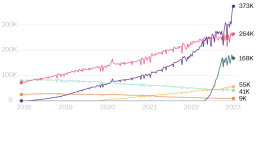Advisers to the World Health Organization will consider next month whether to add liraglutide, the active ingredient in certain diabetes and obesity medications, to its list of essential medicines.
The list, which is updated every two years, includes medicines “that satisfy the priority health needs of the population,” WHO says. “They are intended to be available within the context of function health systems at all times, in adequate amounts in the appropriate dosage forms, of assured quality and at prices that individuals and the community can afford.”
The list is “a guide for the development and updating of national and institutional essential medicine lists to support the procurement and supply of medicines in the public sector, medicines reimbursement schemes, medicine donations, and local medicine production.”
The WHO Expert Committee on the Selection and Use of Essential Medicines is scheduled to meet April 24-28 to discuss revisions and updates involving dozens of medications. The request to add GLP-1 receptor agonists such as liraglutide came from four researchers at US institutions including Yale University and Brigham and Women’s Hospital.
These drugs mimic the effects of an appetite-regulating hormone, GLP-1, and stimulate the release of insulin. This helps lower blood sugar and slows the passage of food through the gut. Liraglutide was developed to treat diabetes but approved in the US as a weight-loss treatment in 2014; its more potent cousin, semaglutide, has been approved for diabetes since 2017 and as an obesity treatment in 2021.
The latter use has become well-known thanks to promotions from celebrities and on social media. It’s sold under the name Ozempic for diabetes and Wegovy for weight loss. Studies suggest that semaglutide may help people lose an average of 10% to 15% of their starting weight – significantly more than with other medications. But because of this high demand, some versions of the medication have been in shortage in the US since the middle of last year.
The US patent on liraglutide is set to expire this year, and drugmaker Novo Nordisk says generic versions could be available in June 2024.
The company has not been involved in the application to WHO, it said in a statement, but “we welcome the WHO review and look forward to the readout and decision.”
“At present, there are no medications included in the [Essential Medicines List] that specifically target weight loss for the global burden of obesity,” the researchers wrote in their request to WHO. “At this time, the EML includes mineral supplements for nutritional deficiencies yet it is also described that most of the population live in ‘countries where overweight and obesity kills more people than underweight.’ “
WHO’s advisers will make recommendations on which drugs should be included in this year’s list, expected to come in September.
Get CNN Health's weekly newsletter
- Sign up here to get The Results Are In with Dr. Sanjay Gupta every Tuesday from the CNN Health team.
“This particular drug has a certain history, but the use of it probably has not been long enough to be able to see it on the Essential Medicines List,” Dr. Francesco Blanca, WHO director for nutrition and food safety, said at a briefing Wednesday. “There’s also issues related to the cost of the treatment. At the same time, WHO is looking at the use of drugs to reduce weight excess in the context of a systematic review for guidelines for children and adolescents. So we believe that it is a work in progress, but we’ll see what the Essential Medicines List committee is going to conclude.”


